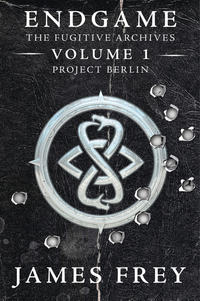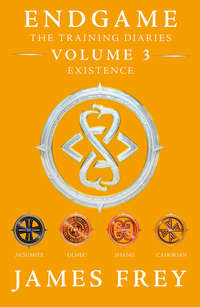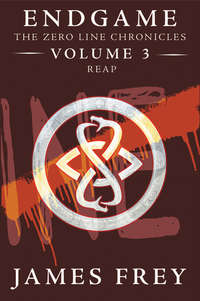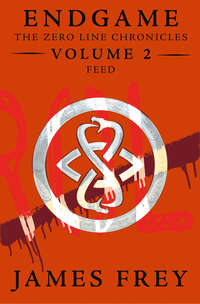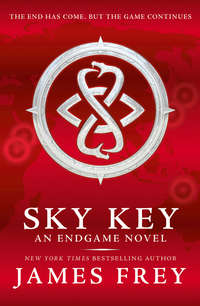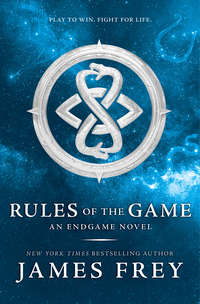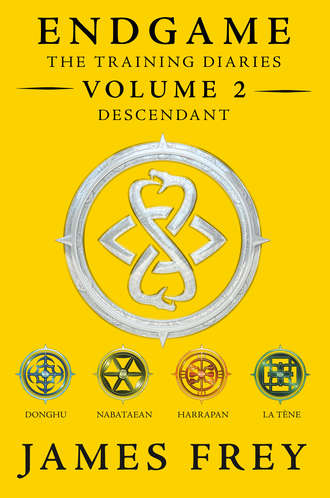
Полная версия
Descendant
Her voice is full of pain—and love.
“What do you think?” Declan whispers to Aisling, ruffling her red hair. “Can we trust Mommy?”
At the word, Aisling bursts into tears. It’s the only answer he needs.
“Okay,” Declan tells Lorelei, hoping he’s not making the biggest mistake of his life. “Get a pen and paper, and I’ll tell you where to find us.”
He trusts his wife.
But he also knows his wife.
“Stay quiet, little girl,” he murmurs to Aisling as he nestles her carrier beneath a tree. She sucks at her pacifier and, he hopes, dreams of happier days. Declan has stationed them on an overlook that gives him a perfect sight line into the valley. Down there, in a deserted stretch of field in the heart of the Ozarks, Lorelei will come for her daughter. He lies flat on his stomach, camouflaged by the weeds, and raises the binoculars.
He’s been careful.
He chose a place he knows like the back of his hand, an open field easily surveilled from the surrounding hillside.
This oasis of wilderness is special to him; it’s where Le Fond first made face-to-face contact with him. Le Fond is his own name for the network of shadow warriors, a small joke with himself: La Tène means “the shallows,” so he thinks of these strange messages from the dark as “the deep.” With few exceptions, they exist for him as whispers, anonymous texts, faces hidden by cloaks and masks.
The young woman who met him here wouldn’t reveal her name or background, wouldn’t explain how she’d come to know about Endgame or why she’d chosen Declan to recruit. “We watch all the Players,” she said. “We saw something in you.”
At the time, he’d taken it as an insult. Had Le Fond seen some fault in him that he didn’t even know was there, some evidence that his faith was weak, that he would be willing to betray his cause?
It’s only slowly, as he follows the bread-crumb trail around the world, that he begins to see. As he searches through artifacts, discovers long-lost documents by long-dead Players of the La Tène line, as he follows their questioning and their clues back and back through the ages, as he finds, finally, the secret cave with its astonishing paintings, he understands. What Le Fond saw in him wasn’t weakness; it was strength—the strength of loyalty and conviction that would drive him straight back to Queens, send him marching into the High Council chambers, desperate to share what he learned. To open their eyes to the truth: that Endgame is a cruel joke of the gods, that the Player’s true role is to kick-start the apocalypse, that this is an endless cycle that the lines can only end by choosing not to Play. That the power is in their hands, if only they decide to use it.
It didn’t occur to him that he’d be laughed out of the room.
Or that when they stopped laughing, they would strip him of his duties in the line and brand him as a heretic.
It’s not just what they want to do to Aisling that scares him.
It’s the worry that, fearing his influence, they’ll never let her see him again.
This patch of overgrown wilderness has lodged itself into his heart; this was where his eyes were first opened. Maybe, he thinks, it will be a lucky spot, and he can open Lorelei’s eyes too.
He holds the binoculars steady.
He waits.
And he sighs with disappointment, but not surprise, when Lorelei arrives at the coordinates—flanked by his father and the La Tène Player. She’s betrayed him, just as he knew she would, and he can’t even hold it against her.
She’s doing what she believes is best for her daughter.
He loves her all the more for that.
Declan’s set up a listening relay, a bug in the meadow so he can hear what’s said down in the valley and speak if need be. He can hear his wife’s confusion.
“Where is he?” she says, panic in her voice. “He said he’d be here. I don’t understand. He wouldn’t lie to me. Not about this.”
“Oh, he’s here somewhere,” Pop says, gazing into the hills. His eyes seem to alight on Declan’s hiding spot, and though Declan knows it’s impossible, he can’t shake the feeling that his father sees straight through the brush, is glaring straight at him.
“You are, aren’t you?” Pop says. “I know you, son. You’re watching us. Listening to us. Don’t blame Lorelei for wanting what’s best for you. We all want what’s best for you.”
“Declan, if you can hear me . . .” Lorelei sounds hesitant, like she’s starting to wonder whether Pop has gone as crazy as his son. “Stop hiding and come deal with this like a grown-up. If you’ll just be reasonable—”
She gasps as the Player seizes her. A gun materializes in the Player’s hand, its muzzle pressed to Lorelei’s head.
Declan stops breathing.
Molly is only 17 years old, and she’s known Lorelei since she was a child. Lorelei once babysat for her, and Molly in turn has babysat for Aisling. Molly and Lorelei have gone shopping together; they’ve ridden the carousel in Central Park together; they’ve sipped frozen hot chocolate and dunked churros into caramel sauce; they’ve watched terrible movies on rainy days; they’ve been the best kind of family to each other. And Declan has no doubt that if Molly thought it was necessary, she would pull the trigger without hesitation.
“You know I’ll do it, Declan,” Molly says calmly. The listening device is sensitive: he can hear Lorelei’s rapid and frightened breathing. “You’re the one who taught me how to be ruthless.”
Declan trained her to shoot. Declan was with her for her first kill. He steadied her, whispered in her ear all the lies he once believed, about how Playing called for blood, how killing could be righteous when in service to the line and the game. He created her, as his father had created him. Thousands of years of cruel lies, all come down to this: A killer he made. A woman he loves. A daughter he’s sworn to protect. A gun.
“I’m sorry, Declan,” his father says. Declan’s heart breaks at the sound of his voice, so disappointed—so hard. “You’ve left us no choice.”
“You want her to live, show yourself,” Molly adds in a hard voice. “Now.”
“Please,” Lorelei murmurs. “Please, Molly, don’t.”
He spent so many years learning how to shut down his feelings, to do what needs to be done. But now, when it matters most, his love and fear threaten to overwhelm him.
He tries to clear his head. Aisling and Lorelei need him focused.
They need him.
He swaddles the pink bunny in Aisling’s blanket and presses it to his chest. He kisses his daughter good-bye. “I’ll be back,” he says, but he doesn’t promise. He tries never to make promises he can’t keep.
“Don’t hurt her,” he says into his comm. Then, just in case, shouts it as loud as he can, his voice booming across the green. “We’re coming!”
Then he descends into the valley, taking a circuitous, untraceable route down.
“Give me the child,” Pop says as soon as he comes into view.
Just seeing his father makes Declan nearly lose his grip on his emotions again. For so many years, Declan has excused the man’s obstinance, telling himself that his father is trying to do the right thing. That Pop believes his stubbornness is in service to a higher cause, and that even wrong, there is virtue in loyalty and steadfastness, in Pop’s commitment to his people and their beliefs. But no more. Here is the man who raised him, swore to love him—the man who is willing to put Lorelei’s life at risk, to sacrifice his beloved granddaughter, all for a lie. “No.”
“You’d risk your wife for this insane delusion of yours?”
“Endgame is a lie,” Declan says, fury rising. How many times has he tried to force his father to face the truth, and how many times has his father refused to listen? “If you would just hear me for once—”
“I’ve listened to enough of your bullshit!” Pop snaps. “We all have, and I can’t let you humiliate yourself anymore.”
“You mean humiliate you—”
“I mean disgrace your family and your line and yourself!”
Lorelei is murmuring something, soft and urgent, trying to convince them all to calm down, to lay down their arms, but Declan and his father are too focused on each other, too angry, both of them too determined to finally win this argument they’ve been waging for years, both of them so certain, both of them so hurt, both of them so lost without each other, neither of them hearing Molly when she snaps, “Enough!” and makes a move to reach for Declan’s bundled blanket and Lorelei won’t let her lay hands on the child and fights free of her grip and there’s a struggle and a shout and then instincts kick in, a mother lunging for her child, a Player fighting for her line, and a trigger is pulled and a shot echoes, and only then do Declan and his father fall silent, and see.
Lorelei, on the ground.
Lorelei, bleeding.
Lorelei, eyes open to the sky, unseeing.
Lorelei, gone.
Molly drops to her side, screaming. “I didn’t mean to,” she says, over and over again. “It wasn’t supposed to go like that.”
Declan lets the blanket drop from his arms. The bunny rolls in the grass, lands a few feet away from the pool of blood.
Pop looks back and forth between his son and his daughter-in-law, between the living and the dead, frozen in between. “Son,” he says. “I’m—”
But Declan will never know what he is: Sorry. Not sorry. Tired of blood. Thirsty for more.
Declan no longer cares.
Declan cares for nothing now but his daughter.
He turns his back on his father. His Player. His lovely, raven-haired miracle bleeding into the grass.
He runs.
Declan doesn’t know how to tell Aisling what happened to her mother. Not now, when she’s too young to understand—and not later, when she will have questions that he can’t answer. Questions about the choices he’s made, and the mistakes.
He doesn’t know who to blame.
He can’t help blaming himself.
He spirits Aisling away from the Ozarks and drives her into the heart of the Mississippi delta. Deep in the swampland, miles from civilization, an old woman lives in a shack, like a fairytale crone. She speaks with the thick accent of the old world, and wraps him and Aisling in gnarled arms when she finds him on the doorstep.
“I’ve been waiting for you,” she says. Her name is Agatha, and she claims to have the Sight. Declan doesn’t believe in such things, but there’s a fire roaring in the hearth and stew boiling on the stove, and the couch is made up as a bed. He stumbles in gratefully, allowing Agatha to take the child from his arms.
He feels empty without her weight.
“It’s happened, then?” Agatha says, her voice a rough croak. “They’ve designated her as a Player, and you took her away?”
“The Sight?” Declan says, skeptically.
“The evening news,” Agatha says. “I extrapolated.”
Agatha is La Tène, like him, which is why he is allowed to know her name, see her face. And like him, Agatha is an apostate, a traitor, a nonbeliever. He grew up hearing tales of her, a bogeyman invented to scare the children: ask too many questions, the wrong kind of questions, and you’ll be sent into the wilderness, where Agatha the witch will find you and gobble you up. Agatha has been with Le Fond for longer than Declan has been alive.
She’s lived in hiding for decades, because the La Tène have never stopped hunting for her and the ancient scriptures that she stole from the archive.
Agatha blazed the beginning of the trail that Declan has been following.
She discovered the first clues that Endgame wasn’t what it seemed, in the words of their very own forebears—and as a reward she will live out the rest of her days in lonely exile.
She can be trusted.
“She’s gone,” Declan says. It hurts to speak the words aloud. “Lorelei. They killed her.”
Agatha says nothing for a long moment. Her expression never changes. Then, though he hasn’t asked yet: “Yes, you can leave the child here with me for as long as you need. Until it’s safe. Do what you need to do.”
What he needs to do.
Go north.
North as far as Canada, where he can slip across the New York border unseen, then south again as far as the city, his city, where he found the happiness he will never have again.
Dye his hair, turn telltale red into mousy brown.
Disguise his face with false nose and beard.
Return to Queens.
Watch his people from the crowds and the shadows. Watch his father. Watch his Player.
Simmer with rage.
Burn.
Burn.
He could kill them, all of them, easily. They’re not expecting him to return. They’re not on guard. He could slip through Pop’s window in the dark of night, slit his throat while the old man snores in his Barcalounger, Honeymooners reruns droning on the ancient TV. He could break into the deli across the street from Molly’s apartment, aim his sniper rifle at her window, send a bullet into her head while she sips her morning tea. Or he could nestle an explosive in the brakes of Molly’s mother’s car, turn her into a ball of fire on the Queensboro Bridge. He could assassinate the High Council one by one. But first take out everyone they love, make them watch. Spatter them with blood.
An eye for an eye.
A loss for a loss.
Declan’s blood is ice; his heart is a stone. He could do it. He could do anything.
But he holds himself back.
Not for the La Tène line or for the dying embers of family loyalty, not for the sake of his humanity.
They robbed him of that, his father, his trainers. They made him a killer, and it’s only justice that they reap the benefits.
He holds back for Aisling.
Someday she will be old enough to know him.
He will be a man she deserves to love. He’s come back here partly to prove to himself that he can be. That in the face of the greatest temptation, he can show restraint. That he’s not simply a soldier and a killer.
Still, he burns.
And now they will burn.
They’ve posted guards in front of his old apartment; he knocks one out with an efficient choke hold and the other with a blow to the head, then lets himself in to retrieve what he needs: a bottle of Lorelei’s perfume, so he can breathe her in when he needs to remember. His journal, a record of every step of his journey from ignorance to acceptance, which he’d left behind in hopes that Pop and Lorelei might come to understand. A photo of Lorelei, so that Aisling will never forget her mother’s face. Then he sets the incendiary device and watches his past bloom into flame.
Next stop: the High Council chamber. Hidden in the basement of what looks, from the outside, to be a dilapidated veterans’ hall.
Declan disables the security system with a few simple clips of the wire cutters, picks the complicated locks on the chamber door, and lets himself in.
It’s easy.
They gave him all the tools he needs to betray them.
The Falcata is hanging in its place of honor over the long council table. He takes it in his hands, presses his lips to the cool metal, a sign of respect for its deadly blade.
Sitting in an ancient brass bowl in the center of the table is a small, polished stone.
This is the mark of the Player. The symbol of responsibility and commitment to the line, of the promise made to the gods and to the coming apocalypse.
Once, his birthright.
Now, Molly’s.
Soon, Aisling’s, unless he can stop them.
He pockets the stone.
Then he places the second incendiary device.
Slips out into the night with the ancient sword, activates the device.
Stands in the shadows, watching the heart of the La Tène line burn to the ground.
It’s only a symbol. A message. Meant to remind them that he is out there, that he will destroy everything they have and everything they are if that’s what it takes to stop them, to prevent Endgame, to save Aisling.
Destroying what’s precious to them doesn’t make up for what he’s lost.
But it feels good.
When he returns to the delta, the shack is gone.
Razed to the ground.
No Agatha. No Aisling.
Declan turns his face to the sky and shrieks his pain to the heavens. His scream shreds the silence of the swamp. Birds scatter into the clouds. Coyotes sing back to him, and together they howl at the moon.
Then, from the trees, another sound. Faint, but familiar.
A child’s cry.
He follows the sound, his heart thumping, lips moving in time with the drumbeat of his pulse, please, please, please.
He finds them curled up together in the hollow of a fallen tree, Aisling tearstained and screaming, Agatha bleeding from too many wounds.
“I don’t know how they found me,” she whispers, as Declan frantically tries to staunch the blood. “But they don’t know the swamp.”
“Where are they?” Declan asks, panic flooding him. Has he just walked into an ambush?
“They looked for a while, then gave up,” Agatha croaks. “Took their guns and their helicopters away. Outsmarted by old Agatha. Again.” When she laughs, blood froths at her lips.
“You saved Aisling,” Declan says in wonder.
“No more children should be sacrificed to this bloody game,” she says, gasping at his touch. Her forehead burns.
“How long have you been hiding out here?”
“I held on until you came back.”
“We’ve got to get you to a hospital.”
He can’t risk it, but for her, after what she’s done, he will.
“No,” she croaks. Then: “No point.”
When he was the Player, Declan learned how to kill, but he also learned how to save. And he learned how to know when people are beyond the point of saving. How to recognize the absence of hope.
She wraps her fingers around his wrist. “Save her from this life,” she says.
He nods. Promises. “Tell me what I can do for you,” he says. “Anything.”
“Save me too,” she says, her gaze feverish but fierce. “Make the pain stop. Please.”
He uses the Falcata, because she is a hero and deserves an honorable blade.
An honorable death.
Declan runs; the La Tène give chase. The line has spent a millennium sowing a global network of allies and informants—there is nowhere beyond their reach, nowhere to hide. He creates a labyrinth of dummy accounts, uses cash whenever possible, invents several fictional personae and sends them off on planes and trains to the ends of the earth. He lays careful bread-crumb trails leading to dead, and sometimes deadly, ends; he sets traps, drawing on his own networks and on mercenaries whose loyalty he can afford to leave in his wake, faceless men and women who alert him whenever the La Tène catch his scent and close in.
As they always do.
Sometimes he and Aisling are gone long before they show up, leaving behind hotel rooms scoured of prints, dingy apartments stuffed with a stranger’s belongings. Sometimes the two of them only just make it. He’s a former Player; he knows never to set up camp without formulating an escape plan, and so everywhere they squat, whether it’s for hours or weeks, he devises a hiding place for Aisling, somewhere she will be safe if he has to fight their way out.
Most of the La Tène won’t dare attack if he has the baby in his arms—she’s too precious to them. But Molly, a Player herself, doesn’t see any Player’s—or future Player’s—life as sacred, and she’s all too confident in her own aim. She comes at him no matter who might get caught in the crossfire.
They have been on the run for two months when they slip across the French border and make their way to Paris. Declan finds them a small garret on the Left Bank, a few blocks from the Seine, and as weeks pass uneventfully, he begins to relax. Aisling falls in love with the city, or at least her small corner of it—they spend hours every day in the large children’s playground in the Jardin du Luxembourg. She becomes snobbish about croissants, only favoring the ones from the boulangerie down the street, and has already started chatting with the pigeons in her own pidgin French. Declan wonders whether it’s possible that they have found a new home.
They’re sitting in Place Dauphine, dipping croissants in a steaming mug of hot chocolate, when it happens. Nothing major, nothing he can put his finger on, just a flicker of motion in the corner of his eye that sets his heart racing.
As Aisling nibbles on the soggy croissant, and Declan keeps a smile fixed on his face, he scans the plaza—and gasps.
There it is, in the northern corner of the square, nearly hidden behind a rack of secondhand books, that familiar head of black hair.
Molly.
Swiftly but casually, Declan straps Aisling into the pouch on his chest that he uses when they need to make a quick getaway, and stands from his chair. If he can just get her safely out of the square and into a crowd—
Aisling screams as something whistles past her ear.
Then, suddenly, there’s a hail of tranquilizer darts and a puff of tear gas and the square erupts into chaos.
Declan runs.
He holds tight to Aisling and takes off toward the Seine, vaulting onto the Pont Neuf and kicking his nearest pursuer over the rail, sending him tumbling into the murky river. He pushes through crowds on the Quai des Grands Augustins, racing for Notre Dame and its swarm of oblivious tourists. Past bridges and bouquinistes, knocking over carts and crepe trucks, anything that will stall them in their chase, across the Petit Pont, until finally the gray, gargoyled edifice looms over them and Declan melts into the crowd, hundreds of parents holding squirming babies to their chests, just like him. He allows himself a heartbeat of relief, but this is only a temporary escape. He lets the throng push him across the square, then slips into one of the apartment lobbies with an entry code he’s memorized for just such an emergency. He waits in the lobby as the hours pass and the shadows deepen, Aisling miraculously calm in his arms, as if she understands exactly what’s going on and trusts him to deal with it. He wishes he trusted himself that much. There’s relief in this escape—but not much of it, because Molly is still out there, somewhere. Maybe Molly will always be out there.
When night falls, he decides it’s time to risk it—they slip out of the building, and his enemies are nowhere to be found. The search has moved on, for now, leaving Declan space to flee the country and seek out yet another new home.
He knows better this time than to imagine that he’ll find anywhere they can stay for long. No matter how far they go, no matter how safe it seems, he’s always expecting Molly to find them.
And she always does.
It happens again in Mexico, this time an ambush in the plaza outside San Miguel de Allende’s Parroquia, and he loses them in that pink monstrosity, holding a mask to Aisling’s face as the tear gas drifts over them and they make for a back exit leading to the Cuna de Allende and, beyond it, freedom.
He always has an escape plan, and he always needs to use it. Dangriga, Belize; Mzuzu, Malawi; Stockholm, Sweden; B

Or he does.
“This is no way for you to live,” Declan tells his daughter. “Your mother would hate this. And hate me for it.”
They’re sitting on the eastern bank of the Rhine River. Aisling plays happily in the mud along the shore. She’s just starting to walk now, and can say a small handful of words. Soon she’ll be old enough to ask questions Declan can’t answer.
“You see that giant rock, Aisling?” He points across the river, to the jagged stone jutting hundreds of feet into the air.
She claps her hands. “Mountain!”
Declan brushes her hair away from her face. It’s a tangled nest of red curls. He should be taking better care of it. He should be taking better care of everything.


